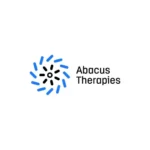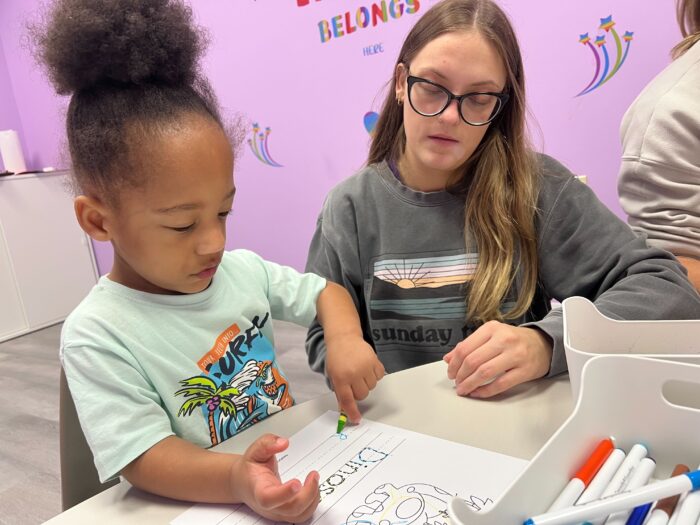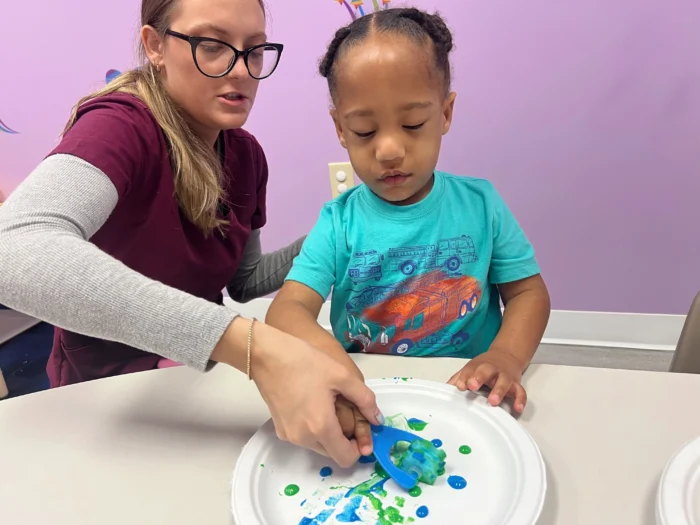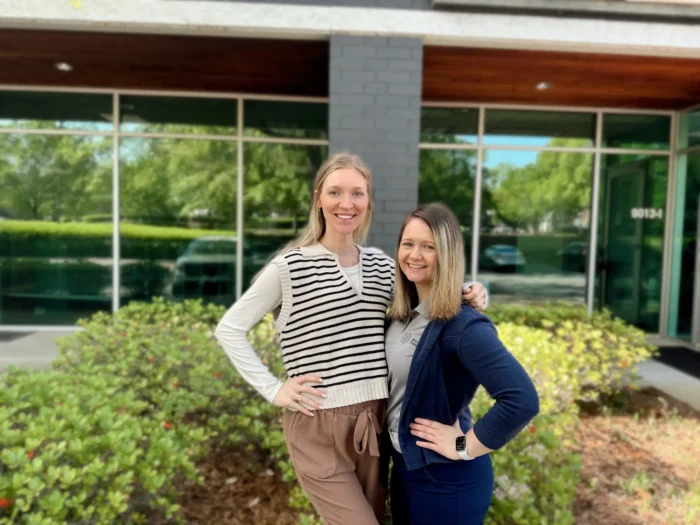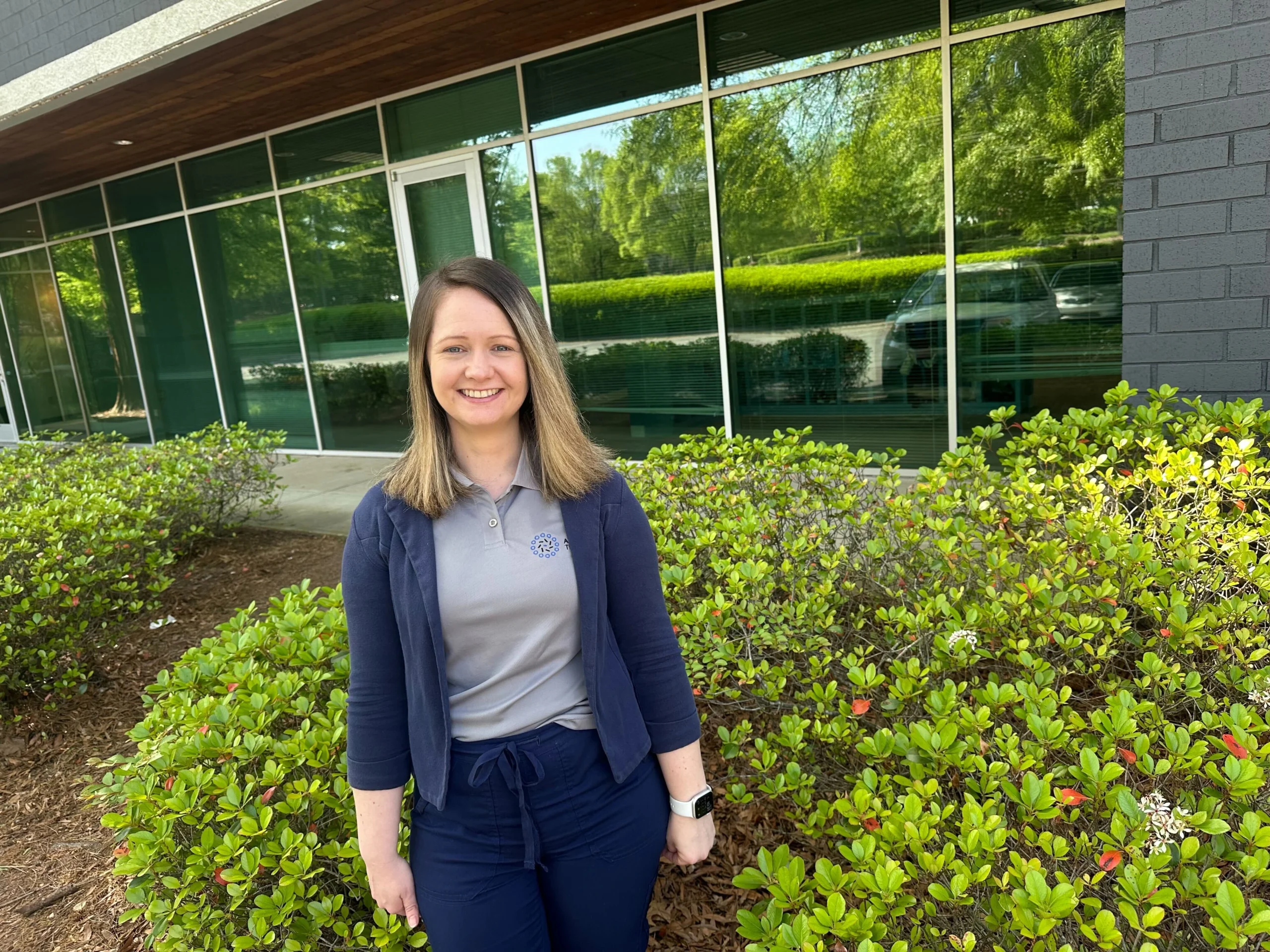
You’re not alone if you’re wondering what kids do in ABA therapy. While this is widely recognized as an effective approach for children with autism, many parents want a clearer picture of what a typical session looks like.
To help you better understand ABA therapy, we sat down with Natalie Schad, Clinical Director at Abacus Therapies, to answer some of the most common questions about ABA sessions and techniques.
Why do parents choose ABA therapy for their child? Do physicians usually recommend it for children with autism?
ABA therapy is often recommended after a child receives an autism diagnosis from their physician. Many of our families come to us after their doctor has suggested ABA therapy as one of the most effective therapies for children on the spectrum.
What’s the ABA therapy session structure? How is it organized?
The structure of ABA sessions varies depending on each child’s needs. At Abacus Therapies, we take a naturalistic teaching approach, meaning we work with children in their everyday environments to develop skills that help them navigate daily life.
This can include:
- Learning to communicate emotions and needs effectively
- Developing independence in daily activities like eating meals and brushing teeth
- Practicing skills in different settings, like schools, homes, sports practices, community spaces, and even grandparents’ houses
While some sessions may involve structured table work and skill-building exercises, therapy is often play-based and integrated into the child’s daily routine.
What techniques are used in ABA therapy? Can you give us examples?
At Abacus Therapies, we use various ABA techniques tailored to each child’s unique needs and goals.
Here are a few key approaches:
- Natural Environment teaching – working with the child in their natural environment(s) and building skills to help them navigate throughout their day. This can be at schools, homes, community-based settings, sports practices, grandparents’ houses, swimming classes, etc.
- Discrete Trials Training – more structured, typically at a table setting. Cards/ trials are presented in a rapid succession to build skills with repeated exposure to the same stimuli
- Functional Communication Training (FCT) – teaching communication skills as a replacement for challenging behaviors (i.e., making requests appropriately, terminating undesired tasks, asking for more time, expressing emotions, etc.)
- Extinction + replacements – reducing/ eliminating problem behaviors (identified via an FBA/FA) and teaching appropriate replacement behaviors that serve the same function as the behavior we are reducing
- Extinction & Replacement Strategies: Supporting positive behaviors by understanding the underlying causes of their difficulties and teaching constructive alternatives.
Since every child is different, we adjust techniques based on their feelings and evolving needs.
How long does an ABA session last?
Session length depends on each child’s individual needs.
At Abacus Therapies, sessions typically range from 10 to 35 hours per week, with an average recommendation of about 15 hours per week.
As you can see, it’s quite a wide range, but we are able to tell after the first consultation and meeting with the child how many hours we recommend initially, and if we see the opportunities for increasing or decreasing the number of hours in the future..
What does an ABA therapy session look like?
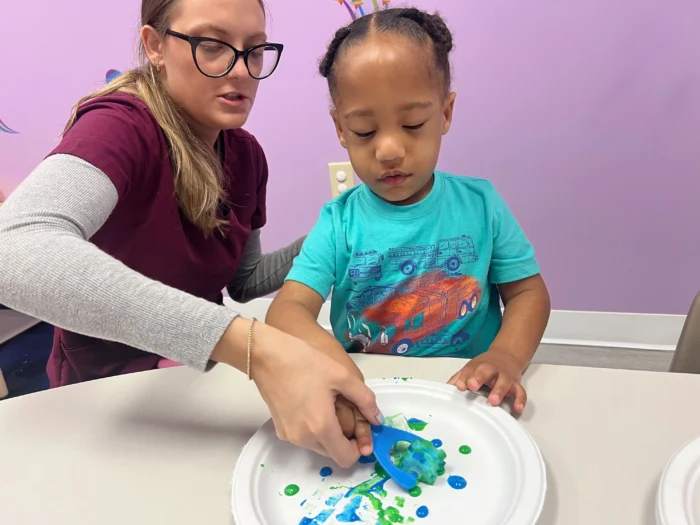
A typical ABA therapy session at Abacus Therapies balances structure with natural learning opportunities. Most sessions begin with a warm-up period to help each child feel comfortable and engaged – maybe playing with a favorite toy or having a friendly conversation.
For instance, if we’re working on tooth-brushing skills, we may talk about the action in a fun way (e.g., “Let’s make your teeth sparkle today!”).
From there, the therapist guides the child through targeted learning activities, often using Natural Environment Teaching (NET), which means learnings that happen during everyday situations rather than only at a table with flashcards.
For example, if your child is learning the tooth-brushing skills, the therapist may work on this right after lunch, in the bathroom, using real material.
They’ll break the process into manageable steps (getting the toothbrush, applying toothpaste, brushing top teeth) and celebrate each small success with praise (“Great job brushing!”), or a small reward that your child finds motivating. That can be a high five, a fun sticker, or a few minutes with a favorite toy or a game.
I also have to mention that each step is practiced one at a time, depending on what the child is ready for.
Throughout each session, our therapists carefully track progress while keeping activities engaging and positive. And they receive weekly visits from the BCBA supervisor to guide and ensure the approach we’re taking is still what each child needs.
What makes Abacus Therapies’ approach special is that we genuinely care for how each child experiences the world. We want them to grow up happy and loved, and that they have fun doing it.
How frequent are ABA sessions?
The frequency of ABA sessions varies based on the child’s needs, but we generally recommend five sessions per week to establish a consistent routine and maximize support.
How soon do parents recognize the benefits of ABA therapy?
Every child develops at their own pace, and seeing the positive effects ABA can have on your child takes time and effort. While we typically suggest at least four months of consistent therapy before evaluating its impact, it’s important to remember that growth looks different for every child.
We also provide parent support and training, which helps reinforce skills outside of sessions, fostering confidence in your child and creating a supportive environment for them to grow up.
Which is better, individual ABA or group ABA?
Both approaches have unique benefits:
- Individual ABA therapy provides one-on-one learning tailored to the child’s specific needs.
- Group ABA therapy helps with socialization and skill generalization by interacting with peers.
We typically recommend a combination of the two. At Abacus Therapies, we offer group ABA sessions at our recently opened ABA Therapy center in Charlotte, NC.
Final Thoughts
We hope this interview provides valuable insights into what to expect from ABA therapy. If you have any questions or want to learn how customized ABA therapy can support your child, feel free to contact us via phone, text, or email.
We look forward to meeting you and discussing how custom ABA therapy can help!

